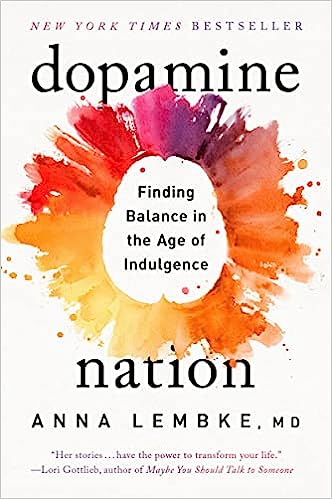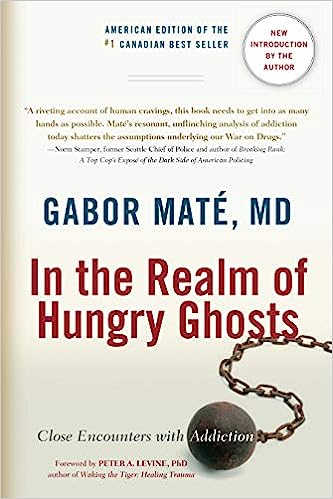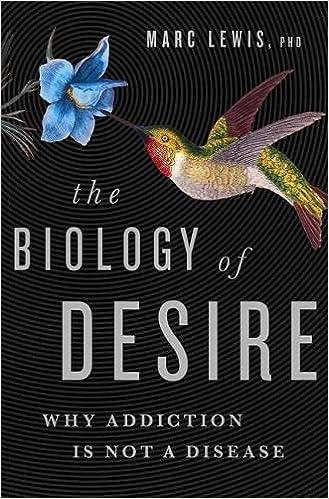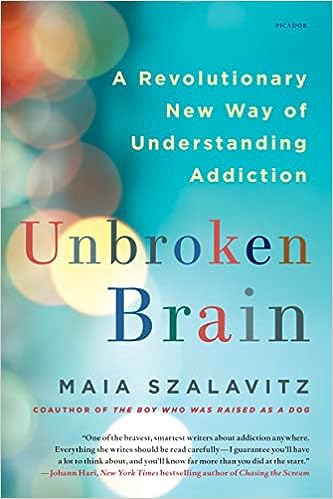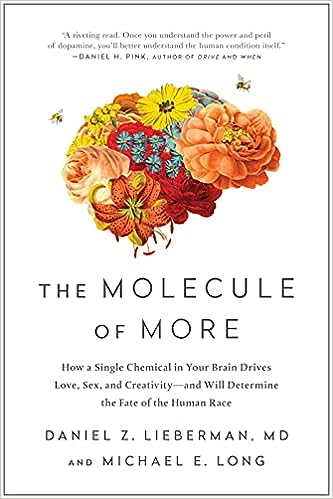Addiction Science
The following is a list of the best books we have come to know to understand addiction science. Whether you are brand new to the topic or have been studying it for years, these resources are incredible additions to your reading library.
Dopamine Nation
“Dopamine Nation: Finding Balance in the Age of Indulgence” is a compelling exploration into the neuroscientific roots of pleasure and addiction.
The author, Dr. Anna Lembke, a leading expert in addiction, weaves together case studies, cutting-edge research, and personal narrative to shed light on the complexities of addiction.
This book discusses the nature of pain and pleasure, the tyranny of compulsive behavior, and the delicate balance we strike in managing our desires.
Lembke presents a fresh perspective on addiction, discussing it not as a disease but as a symptom of our modern world, hyper-stimulated by a constant barrage of rewards. She provides a framework to help us reclaim control of our lives, finding joy in moderation rather than excess.
“It’s not our fault. We are living in an age of unprecedented abundance: one in which we can swipe right and have sex within the hour; one in which drugs, legal and illicit, are delivered to our doors; one in which we can eat whatever and whenever we want, work whenever we choose, shop from bed—pleasure without end. And yet, rather than making us happy, this state of abundance is creating an epidemic of addiction, anxiety, and depression.”
Details
- Original Date of Publication: August 24, 2021
- Author: Dr. Anna Lembke
- Number of Pages: 368
In the Realm of Hungry Ghosts
“In the Realm of Hungry Ghosts: Close Encounters with Addiction” is a journey into the depths of the human psyche, as it confronts the complex world of addiction.
Written by Dr. Gabor Maté, a physician and prominent figure in addiction science, the book merges haunting real-life narratives from Vancouver’s Downtown Eastside, North America’s most concentrated area of drug use, with contemporary scientific and psychological insights.
Dr. Maté’s compelling portrayal of addiction transcends the conventional understanding of the term, extending its scope beyond illicit substances to the broad spectrum of addictive behaviors. He argues that addiction is not a personal failure or inherited disease but a misguided attempt to soothe emotional pain and stress.
Ultimately, the book is a compassionate call to understand addiction through the lens of trauma, emotional hurt, and the desperate human need to escape pain.
“Not why the addiction but why the pain, and the pain is always and invariably from a person’s lived experience, beginning with childhood. Childhood trauma is the template for addiction–any addiction. All addictions are attempts to escape the deep pain of the hurt child, attempts temporarily soothing but ultimately futile.”
Details
- Original Date of Publication: January 5, 2010
- Author: Dr. Gabor Maté
- Number of Pages: 520
The Biology of Desire
“The Biology of Desire: Why Addiction Is Not a Disease” offers a revolutionary perspective on the neuroscience of addiction. Written by renowned psychologist and neuroscientist, Dr. Marc Lewis, the book presents a compelling argument against the prevailing medical model of addiction as a brain disease.
With riveting case studies drawn from real-life experiences interwoven with scientific insights, Dr. Lewis illuminates how addictive behaviors emerge, how they change the brain, and how we can overcome them.
Through a lens of empathy and understanding, he argues that addiction is not a lifelong disease but a habit that can be broken, emphasizing the powerful role of desire, learning, and human agency in overcoming addiction.
“Addiction results, rather, from the motivated repetition of the same thoughts and behaviors until they become habitual. Thus, addiction develops, it’s not contracted. And so addicts aren’t victims of their own ‘broken brains,’ their own genes, or even their own unfortunate choices.”
- Original Date of Publication: April 12, 2016
- Author: Dr. Marc Lewis
- Number of Pages: 256
Unbroken brain
“Unbroken Brain: A Revolutionary New Way of Understanding Addiction” is an intriguing exploration that redefines our perceptions of addiction.
Written by journalist and author Maia Szalavitz, herself formerly drug addicted, the book challenges the traditional disease model of addiction, suggesting that it is more accurately a learning disorder.
With compelling evidence and personal anecdotes, Szalavitz presents addiction as a response to social, emotional, and developmental challenges. She breaks down complex neuroscience into understandable concepts, encouraging a shift in thinking from punishment to empathy and effective treatment.
Her argument reframes addiction as a part of human experience, a learning curve rather than a moral failing or genetic destiny.
“Addiction doesn’t happen to people because they come across a particular chemical and find it irresistibly pleasurable. Instead, the people who become addicted are those who have a particularly strong drive for learning driven by a hypersensitivity to both punishment and reward.”
Details
- Original Date of Publication: April 5, 2016
- Author: Maia Szalavitz
- Number of Pages: 352
The Molecule of More
“Molecule of More: How a Single Chemical in Your Brain Drives Love, Sex, and Creativity—And Will Determine the Fate of the Human Race” offers a groundbreaking exposition of the workings of dopamine, the neurotransmitter most closely associated with pleasure and addiction.
Authored by Daniel Z. Lieberman, a prominent psychiatrist, and Michael E. Long, an acclaimed author, the book unveils how dopamine influences our aspirations, desires, and behaviors.
Through an accessible blend of storytelling and cutting-edge science, the duo explores how dopamine defines us—fueling our love, lust, creativity, but also fostering our addictions. By understanding this molecule, they argue, we can harness its power for better decision-making, healthier relationships, and ultimately, a more balanced life.
“Unlike every other creature on this planet, humans can ignore the present and live in the future. Given a choice between an apple and a banana, a chimpanzee will choose whichever is closer. But a man will go hungry today so he can plant an apple orchard tomorrow. This is because of dopamine, a molecule that lives in the brains of humans and animals alike. It is dopamine that enabled us to achieve our dominion over nature, build civilization, and even reach for the stars.”
Details
- Original Date of Publication: August 14, 2018
- Author: Daniel Z. Lieberman and Michael E. Long
- Number of Pages: 240
Contact Us
We’re here for you every step of the way towards a healthier and more fulfilling life. Contact us today for personalized guidance, support, and to learn more about our services.
Open Hours
M-F: 8AM – 9PM EST
Sat: 3PM – 7PM EST
Sun: 8AM – 7PM EST

